What a difference a year makes. Remember the July 1 weekend of 2021 with record-breaking temperatures that approached 40 C? It was the beginning of the end for crop potential in many regions. That sort of heat is hard on crops even when there’s adequate moisture. When moisture is already lacking, it’s devastating. By contrast, […] Read more
 Livestock Management
Livestock Management
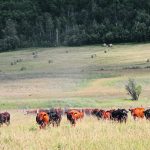
Canola meal may boost fall grazing
Recent study finds the feed ingredient could be an economical way to keep bred heifers in good shape going into winter
ASSINIBOIA, Sask. — Adding canola meal when fall grazing cattle could be a reasonably economical way to keep bred heifers in better shape heading into winter. Dwayne Summach, livestock and feed extension specialist with Saskatchewan Agriculture, revealed at the recent Saskatchewan Stock Growers Association annual meeting the results of a study done last fall. The […] Read more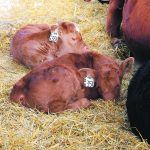
Supplement could help neonatal health
Researchers at Lakeland College are examining the effectiveness of a supplement in calves and lambs to improve neonatal health and immunity. Depending on the results of the two-year trial, they could soon offer producers information on the best management practices to increase profitability, animal health and welfare by increasing neonatal health. “Hopefully long-term, we can […] Read more
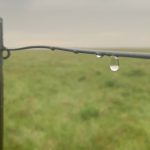
Rain offers relief for ranchers
Cypress County in Alberta’s southeastern corner was the first in the province to declare a state of agricultural disaster and for now the rural municipality intends to maintain that status, according to its agricultural supervisor. “We’ve been getting the precipitation and it’s definitely welcomed. It’s certainly improving the disposition of many people,” said Lisa Sulz. […] Read more
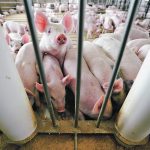
Indirect disease spread remains big risk
Much has been learned about managing the risk of spreading animal diseases such as African swine fever through feed, says an associate professor in the feed science program at Kansas State University. “There’s potential feed mill contamination of pathogens through people, trucks and ingredients,” Chad Paulk told participants at the recent Animal Nutrition Conference of […] Read more
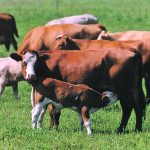
Growth implants can aid development in nursing calves
The use of growth-promotant implants in nursing calves is one of the most cost-effective strategies for improving growth and feed efficiency in the pre-weaning period. Implants have been shown to make a significant increase in weaning weights of calves in many research trials. The weaning weight improvements are often at least 15 to 30 pounds […] Read more
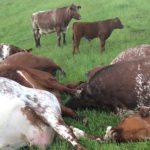
Lightning kills cattle in Alberta
Wayne Zolmer and his son, Todd, received a shock earlier this week when they discovered that 11 cows and a bull died in a lightning strike on their farm near Alberta Beach, Alta., early Sunday morning. Zolmer said the Shorthorn cattle were bunched up in a hillside pasture and weren’t near fences or other metal […] Read more
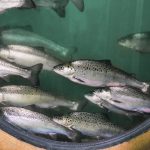
A long, long, road to the fish market
Sure, you may have a great idea, but introducing a food product the world has never seen before makes for an extremely hard business case, according to David Melbourne. “We blazed a trail for genetically engineered animal protein,” said Melbourne, Chief Commercial Officer of AquaBounty Technologies. “We are the first animal protein approved for human […] Read more
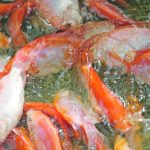
Helping feed the world by feeding the fish
Rex Newkirk is seeing a theme emerge among the food and feed ingredient producers he meets with in his role as director of the Canadian Feed Research Centre in North Battleford. He told the audience at the ABIC Speaker Series event hosted by Ag-West Bio in Saskatoon on May 25 that he started the day […] Read more
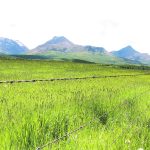
Universities launch soil carbon measurement project
Understanding the processes that producers use to manage pastures and then measuring the carbon storage critical
Scientists are digging deeper into how much carbon is stored in prairie soils. The University of Saskatchewan is co-leading a $3.2 million research project with the University of Alberta that is focused on carbon sequestration for climate change mitigation. The five-year project will study the amount of soil carbon in perennial forage systems across Saskatchewan […] Read more
 Livestock Management
Livestock Management


